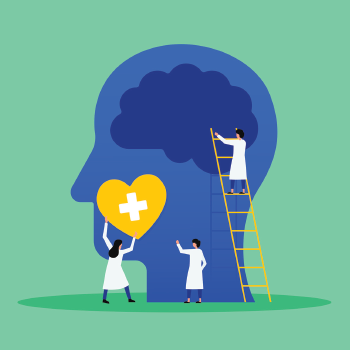
© plataa / shutterstock.com
For months, I had nightmares every night. My husband and toddler daughter had someone who was not their mother or wife, but someone who left the house every morning and came home night after night. I can’t remember if I ate or lost weight. I was a zombie. I didn’t have help. I spoke to no one. I didn’t have time. The trauma, mixed with shame, guilt, grief, and intensified fear, consumed me.
Explore This Issue
April 2020Another event was the inadvertent burn injury through the oral commissure of one of three brothers scheduled for consecutive T&A cases. The surgery center had replaced the Covidien Bovi Teflon-coated cautery tip with a less expensive brand without telling me. The 2 mm gap unintentionally left by the surgical technician, who had inserted the tip to the handpiece, resulted in a lack of insulation where the handpiece made contact with the oral commissure. At the end of the case, when I finally noticed the injury, I was hysterical. I did pull myself together, tears and all, and then went out to apologize to the parents and accept full accountability for causing harm. I told them I fully understood if they wanted to cancel the next two brothers. They didn’t. I performed the next two T&As flawlessly, with intense fear and shaky hands.
About five years ago, I received notice of a lawsuit for a case that had occurred over eight years prior, alleging that I caused learning disability in a child who had a residual small eardrum perforation after tympanostomy tube extrusion. The perforation had been repaired by a colleague after I moved out of state, with normal post-operative hearing per audiogram. I had always dictated my own operative report instead of having a resident do it, but on this day, for this case, a resident had dictated the operative report, and there was an error. Luckily for me, I had practiced for a decade in two states but lived in the one with tort reform, a patient compensation fund, and a cap on noneconomic damages. For two years, I worked with an excellent attorney appointed by the state. On nights and weekends and during a few in-person meetings, we pored over thousands of pages of documents. Despite my insistence that I get my day in court, she advised me to settle. The county and state from which the suit was filed had a track record of 99% decision in favor of the plaintiff, regardless of the facts or science. Until we arrived at a final settlement, I felt an elephant sitting on my mind and chest on a daily basis.
I have a history of depression from losing my mother to breast cancer at age nine. That same year, my father remarried and we immigrated to the U.S. None of us knew English. Years of adolescence pained by harsh cultural and parental lack of affirmation resulted in low self-worth despite academic achievements. My early life provided enough pain and suffering and established a pattern of a lack of mental well-being.
The first time I experienced counseling was in medical school, after a long dysfunctional and damaging relationship. No one talked about mental health or counseling for medical students during my medical school years. The next time was during residency, after a broken engagement. I faintly recall hiding the shame and fear of stigma if others knew. I continued to work daily as assigned and hope no one noticed my flat affect or change in demeanor. I do recall OR staff commenting that I had lost a significant amount of weight. In retrospect I will always be grateful to my chair and PD who helped direct me to the mental health treatment I received. It was not until a few years into my career post training that I experienced counseling again. This time it was marital counseling, a result of my lack of awareness of the high degree of burnout I was experiencing after dealing with infertility, then a miracle pregnancy, and all the time working furiously to “achieve.”